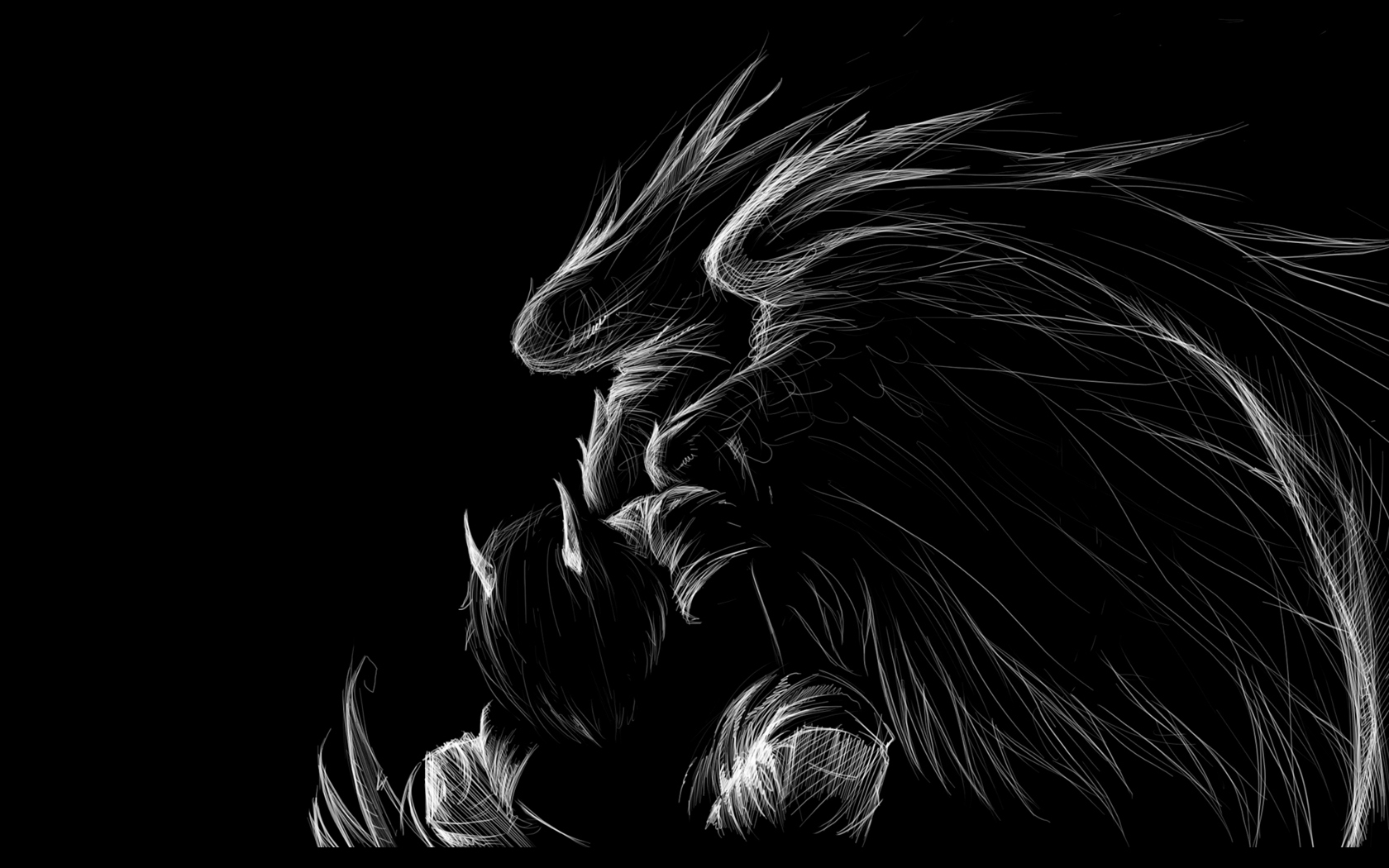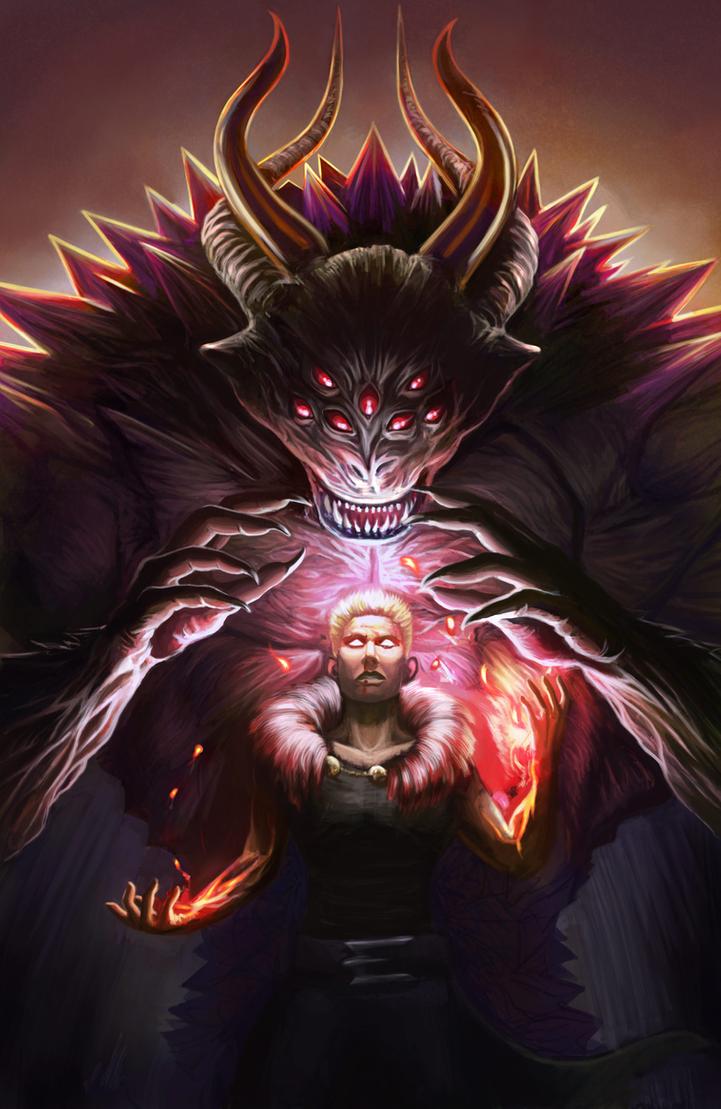The Strength of Sin
All demons share a spiritual affinity for certain sins, a sort of spiritual tie to one of the primal sins which represent negative aspects or emotions of mankind. Which came first though, the demon or the sin, is a question that can never truly be answered. Some demonic philosophers and demonologists suggest that the very first sin was Pride, which manifested in Lucifer as he refused to love mankind better than he loved the Creator. Whether or not this is true is a matter of debate, some arguing that one sin or another was the foundational element from which all the other sins blossomed. What is known to demons and demonologists today is that each and every demon has a metaphysical link to one of the Seven Deadly Sins.
This affinity is referred to as a Sin-Brood and represents not only the sins that pervade the demon's nature, but also the sins it seeks to proliferate in the world and the sins it draws strength and power from and has dominion over. The Sin-Broods can be thought of as 'families' of demons, such as pride demons, or demons of wrath, and such families share similar abilities and outlooks.

Each of the demonic Castes, whose origins supposedly lie with the Morningstar himself, is linked to two of the deadly sins. From this linkage, demons draw strength and power and gain unique capabilities. Four of the castes are linked directly to some of the Sins, and only the Commanders have links which seem to reflect their inner nature or are perhaps tied to soul of the person.
The Sins of Man
Pride
Associated Demonic Castes: Warriors & Commanders
Pride describes a personality quality of extreme or foolish pride or dangerous overconfidence, often in combination with (or synonymous with) arrogance. It represents a sense of false hubris that makes a man defy God, sometimes to the degree that he considers himself an equal. It also refers to a foolishly and irrationally corrupt (overinflated, overestimated) sense of one's personal value, status, or accomplishments.
Envy
Associated Demonic Castes: Reavers & Commanders
Envy is an emotion which "occurs when a person lacks another's superior quality, achievement, or possession and either desires it or wishes that the other lacked it."
Greed
Associated Demonic Castes: Tempters & Commanders
Greed is an inordinate/insatiable longing for an increase of either material gain (be it food, money, land, or animate/inanimate possessions) or social value such as status, or power.
Gluttony
Associated Demonic Castes: Keepers & Commanders
Gluttony means over-indulgence and over-consumption of food, drink, or wealth items, particularly as status symbols.
Sloth
Associated Demonic Castes: Keepers & Commanders
The word "sloth" is a translation of the Latin term acedia means "without care". Spiritually, acedia first referred to an affliction attending religious persons wherein they became indifferent to their duties and obligations to God. Mentally, acedia, has a number of distinctive components of which the most important is affectlessness, a lack of any feeling about self or other, a mind-state that gives rise to boredom, rancor, apathy, and a passive inert or sluggish mentation. Physically, acedia is fundamentally a cessation of motion and an indifference to work; it finds expression in laziness, idleness, and indolence.
Lust
Associated Demonic Castes: Tempters & Commanders
Lust is a psychological force producing intense desire for sexuality, such that the desire governs the person's intellect and will, rather than the intellect and will governing the desire.
Wrath
Associated Demonic Castes: Warriors & Reavers
The neutral act of anger becomes the sin of wrath when it's directed against an innocent person, when it's unduly unbending or long-lasting, or when it desires excessive punishment. "If anger reaches the point of a deliberate desire to kill or seriously wound a neighbor, it is gravely against charity; it is a mortal sin." Wrath is also expressed in Hatred. Hatred is desiring that someone else may suffer misfortune or evil.

Religions & Sin
Although the Seven Deadly Sins used for Sin-Brood classification is traditionally viewed as a Catholic construct, the original list actually stems from a group of early Christian ascetics who presented these sins as behaviors or habits that directly give birth to other immortalities, thought to be abuses or excessive versions of one’s natural faculties or passions. When the classification was brought to Europe around 430 AD, it was grasped as inspiration for many authors and artists of the time and embraced by the Catholic Church, followed by other Christian faiths, as a fundamental way to help people curb their inclination towards “evil” before misdeeds and dire consequences occurred.
While every religion has their own views on what constitutes a sin, how serious the offense may be, and what the appropriate atonement should be, it is a universal truth across all faiths that there are actions which defile the human spirit. Further, these transgressions can be grouped into one of the traditional seven. For example, the Wiccan Rede “An’ ye harm none, do what ye will” can be broken by causing harm to another, constituting wrath if deliberate or perhaps sloth if accidental. In Buddhism, creating a schism in the society of Sangha is perhaps the sign of pride when one presumes to know better than the holy doctrines.

